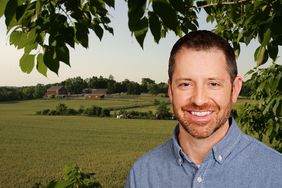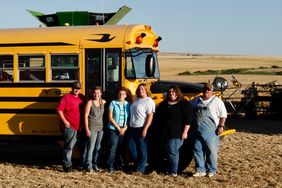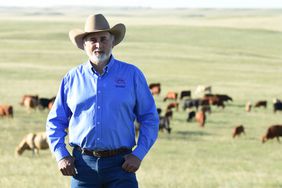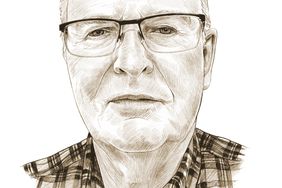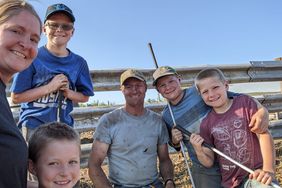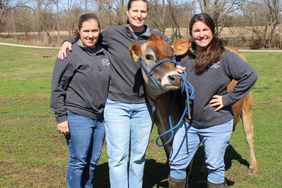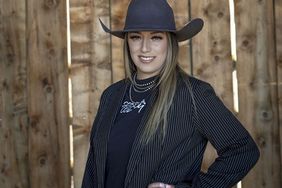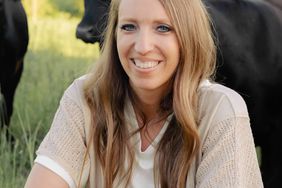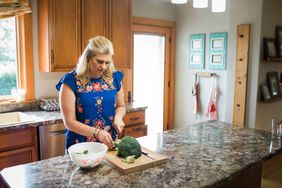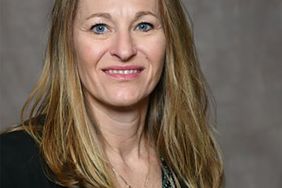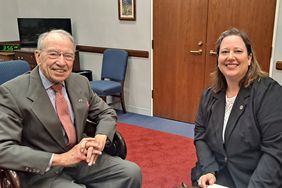:max_bytes(150000):strip_icc()/7019586DarylHaackfinalhue_preview-3f85598f30d2483cbcb673bf2398945c.jpg)
Illustration by Lauren Crow
Daryl Haack has been farming since the mid-1960s and is one of the founding board members of the Iowa Renewable Fuels Association (IRFA) and Little Sioux Corn Processors (Little Sioux), an ethanol plant near Marcus, Iowa, northeast of Sioux City. He has watched the biofuels industry grow from the ground up. He sat down with Successful Farming to reminisce on how the industry began and discuss where it is headed.
SF: When the ethanol industry was just getting started, you were a member of the Iowa Corn Promotion Board (Iowa Corn). What was your role in those early years?
DH: I was on their market development committee, and that was the committee that worked with ethanol. We had meetings in coordination with the Iowa Farm Bureau Federation entitled “So You Want to Build an Ethanol Plant?” At that time, they were started by groups of farmers.
SF: So it was essentially a training session on how to get started?
DH: Yeah, we had several of them. Several groups were organized and then built ethanol plants. And at that time, Lucy Norton was the staff person with Iowa Corn that I worked with. One time we got to talking, and she said: “So what do we do next? How do we help these ethanol plants survive?” And we did some brainstorming and thought, maybe we should start an organization of those plants. So we started the Iowa Renewable Fuels Association.
SF: What was the coolest thing you got to be a part of at that time, when everything was starting to grow?
DH: I guess probably building the plant. I was on that original board and raising money. That wasn’t a lot of fun, but we got the job done, and met a whole lot of people raising the money to build it. And then at that same time, starting IRFA, getting that organization figured out. I’m just happy that it has grown and has remained viable. It’s been a good, fun 22 years.
SF: How have you seen the ethanol industry make a difference for farmers?
DH: Before the ethanol plants, the basis difference between the Chicago Board of Trade price and our local price for corn was probably negative 20¢ most of the time. And since the ethanol plants, currently it’s 10¢ or 15¢ over, and there are times when it goes 40¢ or 50¢ over.
SF: Are there ways Little Sioux has impacted its surrounding community?
DH: We’ve got 150 grain trucks coming in every day, and then a third of that in distillers grains trucks that go out, maybe more than that. So, there’s a whole lot of truck traffic, and these trucks need repairs. And so the truck repair shop in Cherokee (southeast of Marcus) just grew. I’m sure there are other businesses locally that [have benefited in a similar way].
The other thing I thought about was, most of the investors live within a 50-mile radius of Marcus or Cleghorn, and they have gotten dividends for their investment, which comes to somewhere [near] 10 or 12 times what they invested. And their shares are worth about 15 times what they’ve paid for them.
SF: What is next for the ethanol industry?
DH: I think we’re going to expand into other uses. Whether it’s ethanol going into sustainable aviation fuel, or whether it’s distillers grains being a high-protein product, or corn oil. We are probably the second plant that started taking out corn oil, and it’s turned into a really good profit center for us, with the renewable diesel and biodiesel [industries]. We’ll figure out ways to become more like wet mills, where you don’t have to depend on ethanol for all your profitability. That’s where we need to go.
:max_bytes(150000):strip_icc()/CassidyWalter_1-web-83717e5b38194dfa9e314356b6d4c1c2.jpg)



